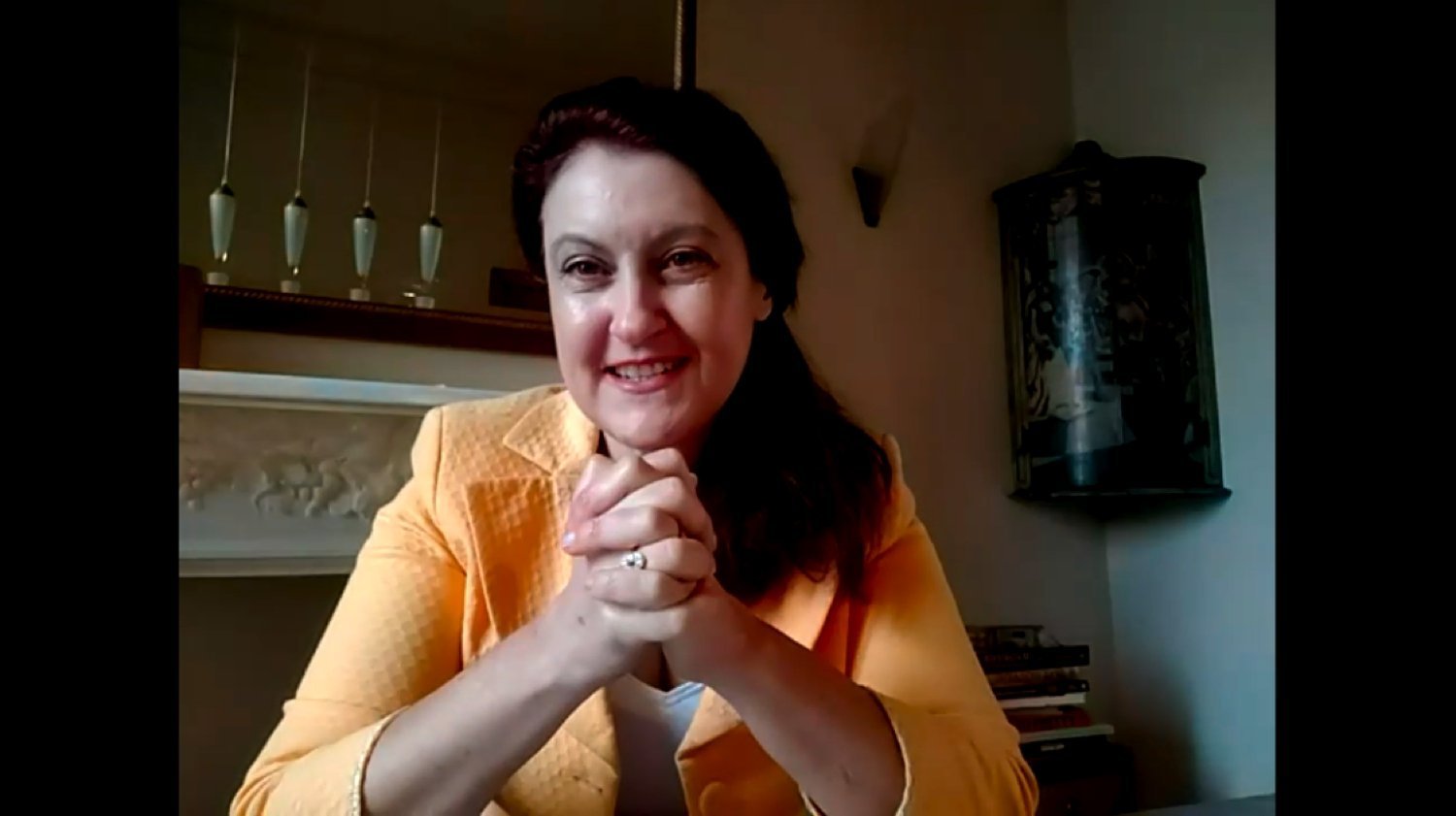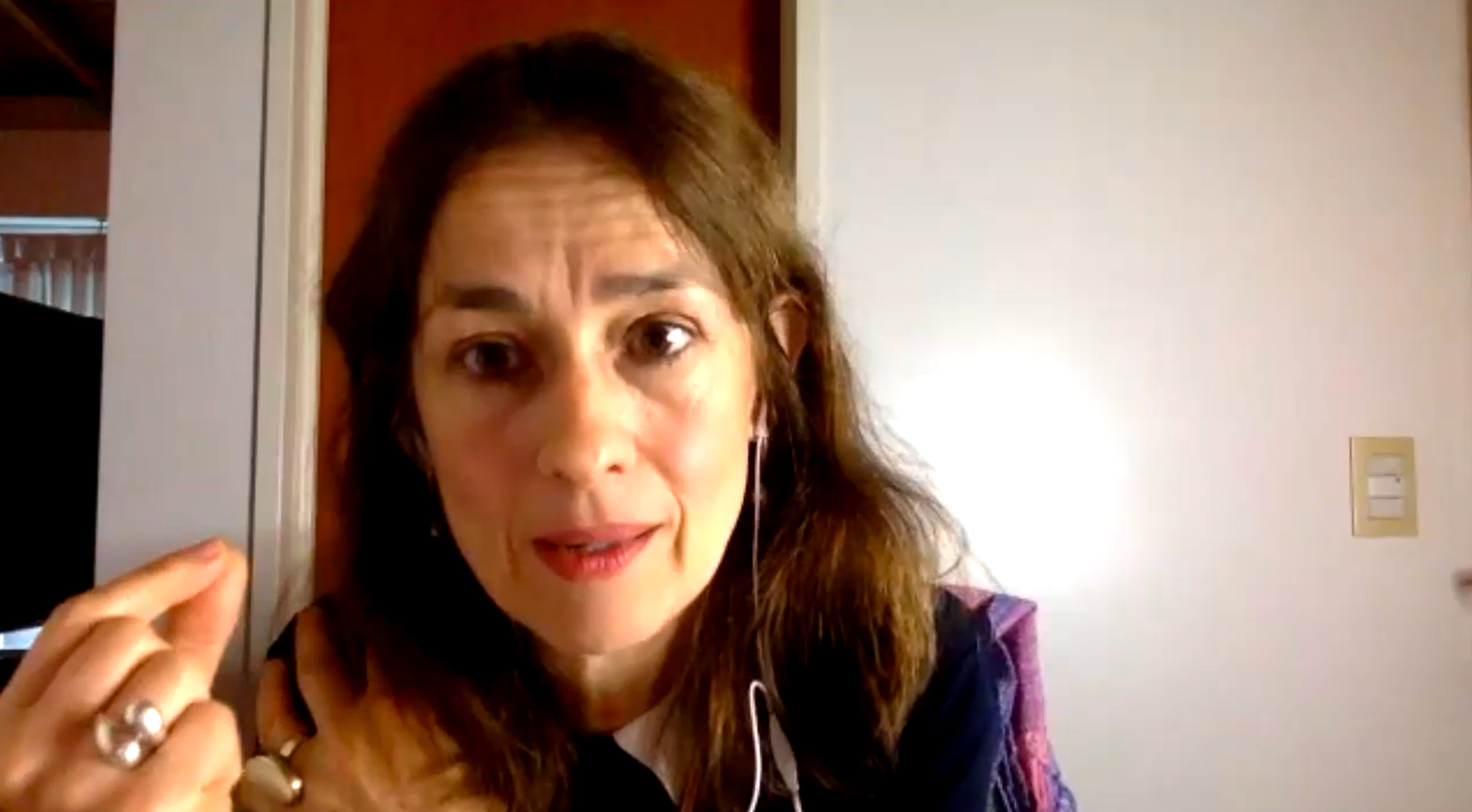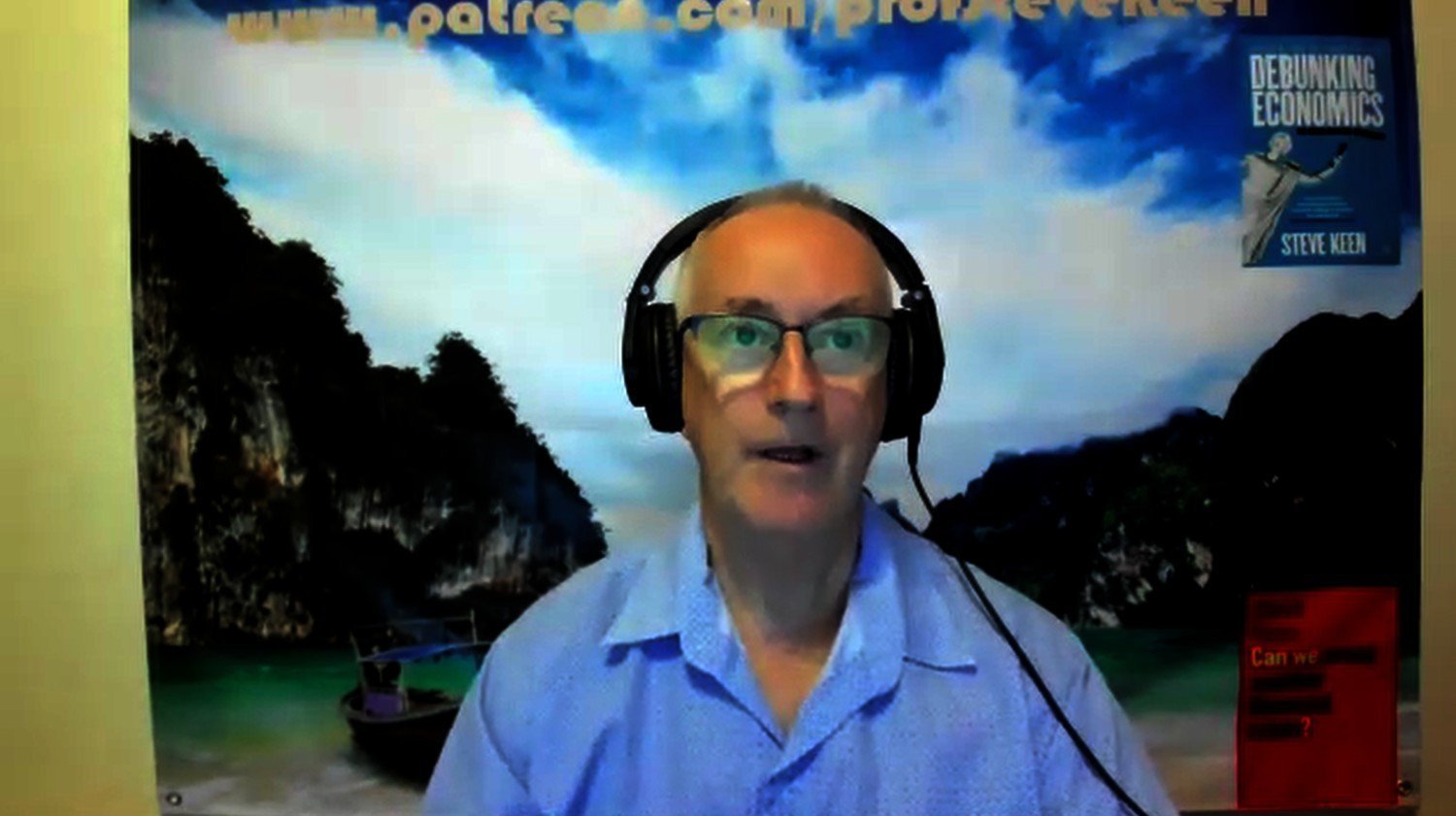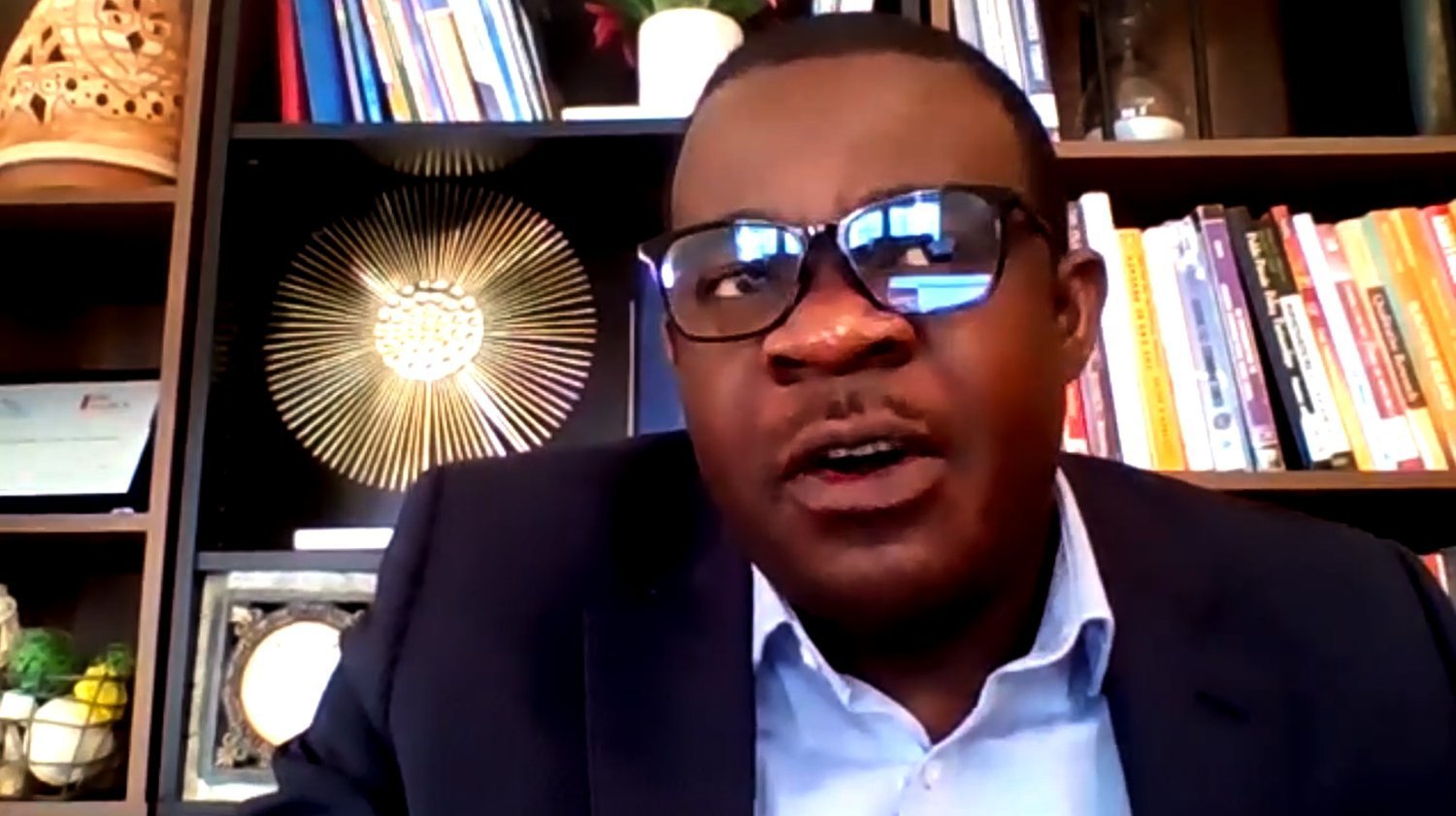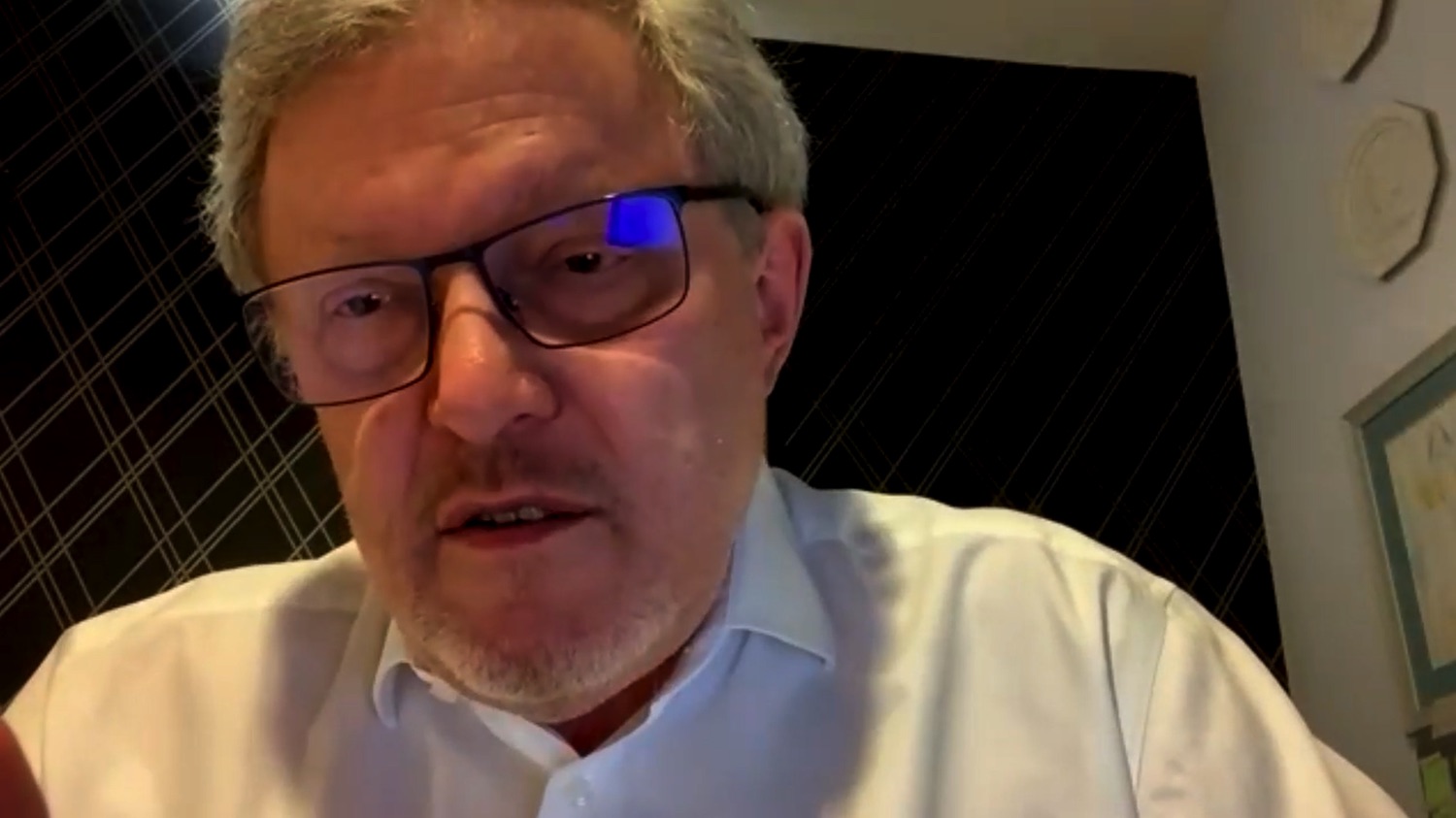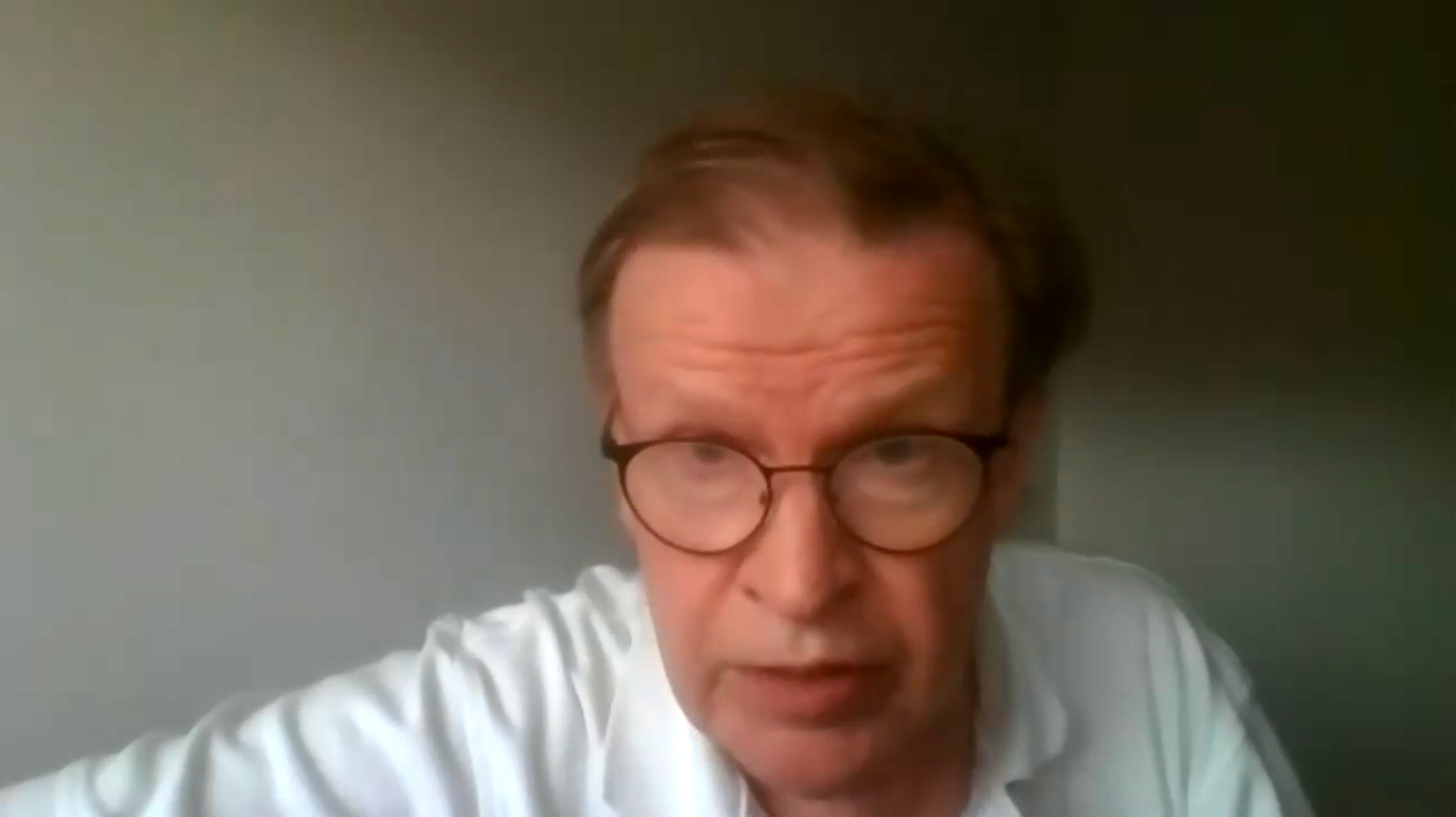Rana Foroohar
American. Business columnist, associate editor at the Financial Times, and also CNN’s global economic analyst
1. Why does economics matter?
So that’s a big question. Economics matters, I think, because more than really almost any other science that you can think of and we can debate whether economics is a science or not, but it’s currently thought of in that respect within academia… Almost more than any other science it shapes people’s daily lives. So economists come out of the top universities around the world that go into policy making decisions in state treasuries and financial services offices, you know, running policy, giving informations…
And they make decisions about how markets run, how we get to bank, how we get to shop, how our children receive their education, how countries develop their health care systems, how we think about climate change. So really, almost everything that you can see and touch around you has been shaped by economic policymaking. And it’s really interesting, because one of the things that has always fascinated me is that given how much influence the economics profession has on daily lives, not many economists actually spend that much time thinking about daily life as much as you would think. Now, there are, of course, exceptions to that rule. But I had a very interesting conversation once with Joseph Stiglitz, the Nobel laureate, who’s a great friend and mentor of mine, and he, of course, came up with… received his Nobel for coming up with the idea that markets are not always efficient. Well, like many things in economics, the average person could sort of look around and say, wow, that’s a Nobel laureate winning idea…
You know, I could have noticed that. But Joe said to me, you know, I grew up in Gary, Indiana. Gary, Indiana is a big industrial base in the Midwestern American heartland. It’s a place that has great inequality. There’s been a lot of hollowing out of manufacturing jobs. And so growing up in this city, you looked around and saw markets are not allocating capital efficiently. We’re not seeing savers funnel their savings to productive uses in the real economy. There’s there’s an imbalance here. So, you know, I think we are at a tipping point where I expect that economics will continue to be extremely important to the lives of real people. But I think that you’re going to see a lot more real person input into how economists think themselves.
2. What are the differences between economic science (academic economics) and economic engineering (policymaking)?
Well, economic science is based on conventional economic theory. For the last 40 years or so, in most of the developed world, certainly in the Anglo American world and to a certain extent in other countries, there’s been a sort of neoclassical model which has morphed in some ways into what in America we would consider a neo liberal model, meaning the idea that capital goods and people should be able to flow freely around the world wherever it’s best for them to do so. These ideas were really developed in large part at the University of Chicago, sort of brought to fruition by economists like Milton Friedman, who came up with the idea of shareholder value and the notion that companies really only needed to worry about making profits and everything else would sort of take care of itself. But in some ways, this is the surface idea of a deeper idea, which is Adam Smith’s idea about the invisible hand. And Smith is in some ways the father of modern capitalism, modern market economic thinking.
And it’s interesting because, you know, we talk a lot about the invisible hand, the notion that if we just let markets operate the way we want them to do that, the best and most productive outcome for society will result. That has been the conventional economic thinking in most major universities for the last 40 years. It would be very difficult to be thinking outside of those ideas in economic science and say be able to get on a tenure track, get your Ph.D. and go on to a big policymaking decision.
But those ideas are now being challenged by by a variety of people inside and outside the profession.
And so I think that the conventional policymaking that you’re seeing is actually starting to be sort of poked at by people within the science. And I’m thinking of someone like Bob Shiller, for example, who actually came up with the idea that, hey, you know, maybe there’s some some human emotion at play here. Maybe there are things like… the idea that we don’t always make rational decisions. The idea that people are people and we live in messy biological systems.
There is a very interesting work being done at MIT around biological systems and how they might affect the way different actors represent themselves in the system. So I think policymaking is beginning to change and it’s always been somewhat different in different countries. That should be said. I think America in particular had a propensity for neo liberal economic thinking and policy making. And, you know, it worked well for a certain period of time for the US and for China. It didn’t work so well for many other countries. There were certain blocs of countries, for example, the social democratic countries in Europe that always made policy decisions somewhat differently and always had different assumptions about how markets should or shouldn’t be regulated in order to best serve society. There were, of course, major challenges to the new neoliberal economic model, the idea that emerging markets should simply just open themselves up wholesale to US companies, to Western companies without any capital controls. That was something that was opposed by a lot of people. So policymaking doesn’t always fit with science. And to be honest, I never really saw as an outsider to the profession, but someone that’s covered economics in business for 30 years as a journalist, I never really considered economics the hard science. I think that economics has always had a little bit of physics envy. It would like to think of itself as being entirely mathematical, entirely something that could be cooked up in ivory towers and not really tested in the real world. But frankly, as we’ve found in 2008, as we’ve just found in the midst of covid, markets don’t always act the way we think they’re going to act in the way that the models predict. And of course, mathematical models are always only as good as the inputs that go into them. And there are a lot of people, myself included, that think that many of the assumptions that might have been made in classical models over the last 40 years are going to be faulty going forward because there are so many changes happening to geopolitics, to technological disruption, to the climate.
I could go on and on, but I think we’re really on on the edge of the post neoliberal economic world, and I’m very interested to see what that’s going to look like.
3. What role does economics play in society? Does it serve the common good?
Well, the mathematical assumption is that it’s supposed to serve the common good, you have the neo neoclassical models, what some would call the neo liberal approach would say, yes, as long as you let markets operate freely without government restrictions, that they will automatically funnel capital to the most productive places.
But frankly, there are just so many examples in the real world of that not working. That to me, it almost seems absurd that we would say we can simply trust basic models to allocate capital well and to serve society without some input from regulators, from citizens. I mean, I’ll give you two examples. My first book “Makers and Takers” looked at the way in which financial markets, which were meant to be an intermediary, to help savers and people that needed capital to connect productively, that they had actually become really the driver of the real economy.
So if you look in the US, but actually in all OECD countries over the last 40 years, you have the size of the financial market increasing even as you had growth slowing in the real economy. So that’s sort of counterintuitive. You would think that, hey, if financial markets are booming, then the real economy should be booming, too. But in fact, it’s just the opposite. So why is that? Well, there’s now a body of research, many, many studies done by everyone from the IMF to individual academics to the OECD showing that as the financial sector gets bigger, it tends to suck up the oxygen of the real economy.
And in fact, it starts to create perverse incentives where companies will do things like try and manipulate their share prices with buybacks in order to look better on paper, whereas that’s not actually creating any jobs or any real productive use in society. And so that’s one of the reasons why we have this bizarre situation that we have at the moment in the midst of covid-19, where we have some of the worst GDP figures on record since the Great Depression. And yet you have asset prices way up here.
Well, that’s not a market system that is functioning properly. So financial services has become an end into itself. Almost the tail that wag the dog of business classical models would not have said that that should happen, but it has. If I step back and look at a more personal level and answer that question, does economics serve society? I’m remembering an interview I had actually. This, in fact, led me to to write my first book “Makers and Takers”, which looked at financialization and in a deeper way looked at the market system and why it seemed to be functioning so poorly over the last few decades. I had a conversation in the wake of the financial crisis with one of the economic policymakers from then President Obama’s team in the US. He had stepped down and was giving some talks about what had happened and the administration’s handling of the financial crisis. And the message was basically like, OK, we’re all done three years on, we’re out of the woods. Nothing to see here. And I was actually looking at the news and saying that the Dodd-Frank financial regulations were only half written.
This was three or four years on from the crisis. Most of the consultation with regulators had been taken by the largest banks themselves. So about 98 percent of all the meetings about how to regulate banks were being held between regulators and banking executives, which is just sort of a bizarre paradigm. You know, if you think about building a bridge, you would want to talk to some engineers, but you would also want to talk to some people in the community, people that might be using the bridge.
There’s a broader group of stakeholders here, but the system had become so siloed that it’s almost like everyone had blinkers on and they thought, oh, this topic is so complex and technocratic, only bankers can understand it and… Well, not really. So I raised my hand and I asked that question. I said, how can you say that things are OK, that the system is safe when financial regulation is only half written and most of it is being written by banks themselves.
And the regulator, the former regulator, looked at me with real confusion and said, well, who else should we have been talking to? And I was just stunned by that, and I looked around at the other journalists and no one really seemed to think this was a surprising answer. And that’s when I thought, wow. We have come so far down this road that people don’t even see that there’s a problem anymore and that seemed like something that really deserved addressing and I think it is being addressed now.
I think in some ways, the populism, the nationalism of the last few years, the sense, I think all too often justified amongst local populations that there have been a group of economists taking decisions making have benefited a certain group of people at a global level, but perhaps have left a lot of people at a national level in pain, I think. But that’s really come to into the narrative now. And it’s forcing the economics profession to really ask itself whether it is indeed serving society.
4. Economics provides answers to problems related to markets, efficiency, profits, consumption and economic growth. Does economics do a good job in addressing the other issues people care about: climate change and the wider environment, the role of technology in society, issues of race and class, pandemics, etc.?
That is a big question. So let me let me take that in pieces, actually. The first thing that comes to mind is that economics is a data driven science in general, although that, too, is changing. We now have behavioral economics, neuroscientific economics… Areas that really think about broader science, sciences and disciplines. Anthropology is becoming more important economics… But in general, it’s a mathematically driven science. And so it’s all about what can be measured and what can be measured easily. So that’s problematic if you’re not measuring the right things. So a classic example, sort of Kafkaesque example, really, of how measuring certain data points might give you an answer that’s completely wrong. In the US, for example, we have a lot of prisons. We don’t have particularly good social safety nets. We have a lot of guns and we have a lot of young African-American men in jail. Perversely, when you tally up American GDP, those prisons actually make our GDP figures look better on paper.
But if you go abroad to, say, France or Italy, Germany, one of the European countries that actually have a strong social safety net, a strong health care system, you might have, particularly with health care, you might have much better health care outputs that then actually increase productivity, decrease costs within the health care system. That actually shows up as a loss in terms of growth because it’s about spending as opposed to growing. So it’s a totally perverse way to look at growth.
And that’s one of the reasons why many economists have talked about thinking about a well-being GDP. Really starting to measure many other assets like human capital, but also costs like poor health care outcomes or poor environmental outcomes. I mean, the idea that this does not get tallied into the GDP figure is really kind of absurd. You also have at this particular moment, you have a massive structural change happening in the global economy. So we are in the midst of what I would call a hundred year shift or so where you’re moving from an industrial economy made up of things that you can see and touch and taste into a digital economy, a virtual economy.
And we’re really only at the end of the beginning of that the consumer Internet, the phones. I don’t have my phone with me. But the everything that you’re holding in your pocket as a consumer that has made people more efficient, may make them speed up, create a certain amount of digital value. That’s all now coming into the industrial space. We’re not really measuring that. We’re still measuring things coming off the factory floor. So there’s a tremendous amount of value, but also many costs that are not being calculated. So on the one hand, these devices have made us all do things a lot more quickly and they’ve made us productive in some ways, perhaps that productivity should be measured more accurately than it is. But there are also costs in the sense that the top companies that are producing now and holding most corporate wealth are creating fewer numbers of jobs. So there’s a disconnection between corporate wealth and job creation. So again, Wall Street and Main Street get disconnected. We’re not really measuring that either.
I mean, climate change is just the kind of the big elephant in the room that we can all look around. I mean, I’m literally I’m sitting in New York right now. The other day, the skies were gray, not because of the weather here, but because of the fires in California, which we can now smell the smoke from… There, making it hard to breathe. How is that going to exacerbate the underlying conditions that may cause more people to get Covid?
How is that going to affect our GDP in the short medium, longer term? I mean, I could go on, but you get the idea here. So the science is not - and again, I use the word science in quotation marks - is not really grappling with all of this yet, although I will say I think that there’s been some interesting work at the OECD done in this respect. I attended a digital GDP conference in Washington a couple of years ago, and it was fascinating, the questions that were being raised from people from one hundred twenty different countries that are attending about how we need to radically rethink how we are calculating the basics of growth.
5. As we live in an age of economics and economists – in which economic developments feature prominently in our lives and economists have major influence over a wide range of policy and people – should economists be held accountable for their advice?
One hundred percent, I mean, and frankly, if you looked at the track record of the profession, just in the last 10 years and how woefully poor it’s been, and you said, all right… If the medical profession had that track record, you know, if you sent a certain percentage of the people into the hospital and they came out with as many wrong predictions, as many botched operations as the economics profession has had in predicting the 08 crisis, you know… How the US China situation was going to work out, how supply chains have been disrupted in the midst of Covid?
You’d have some lawsuits, at least in my country. And that’s another unproductive thing, tort law. But we can we don’t have to get into that. So, yeah, I almost feel that there should be a kind of a Hippocratic oath that economists should be taking because people are not data inputs. I mean, that that is all too often the problem with economists that I speak to. They speak from a very emotionally distant point of view about humans as though they were inputs into this these models, when in fact there are real world consequences. But then, by the way, disrupt the models. And I’ll give you a good example. When I was working on my first book, I had a fascinating conversation with a union leader who was talking to me about NAFTA and the entry of China into the WTO. And he had been talking to a policymaker in Washington at the time who was pushing forward the agreements. And this union leader said to the policymaker, well, gosh, these deals are going to kill us.
I mean, they are going to they might be good at a global level, but they’re going to hollow out huge parts of the rural Midwest, of the South. They’re going to send entire industries abroad. And from the policymakers standpoint, that makes sense because he wasn’t thinking about people. He was thinking about a pyramid in which we wanted to give up these jobs at the bottom and keep these jobs at the top. But that doesn’t take into account that there are real people doing these jobs.
And so the union leader said, well, all right, how long do you think it’s going to take for all this to kind of equalize so that, all right, cement factory jobs go to China. Eventually their wages come up, they can buy more US products. And the policy makers said, well, maybe three to five generations. And it’s like… What?! I mean, how is that an acceptable answer? How?! And that’s part of the problem, frankly, is that when you’re sitting in the ivory tower, you don’t have to go and look individual people in the eye and say, I’m going to sell you, your community, your children out for three to five generations, because ultimately it will be better for everyone in this rich country to be bankers or software engineers than it would for them to be making cars, which I don’t think was the right decision anyway.
As we’re seeing, banking and software engineering actually can’t employ large numbers of people. But it’s that kind of disconnect that I find so disturbing in the profession. And it’s one of the reasons why I feel very strongly that we need more non economists in the room. We need anthropologists, we need scientists. We need community activists. We need journalists. We need people asking the quote unquote dumb questions, which are frankly always the best questions.
6. Does economics explain Capitalism? How would you define Capitalism?
I think economics tries to define how capitalism works, how the market system works, but I don’t think that there’s one definition of capitalism itself.
And I think that’s something that people don’t think about enough, particularly in the US, in our politics at the moment. There’s very much a misunderstanding, I think, between capitalism and socialism. I mean, for example, Bernie Sanders, when he was a presidential candidate on the left, was often called a socialist. Well, he’s a democratic socialist. And in terms of his policies, he’s probably pretty close to your average German Christian Democrat. I mean, we’re not talking about Russia in the 20s here.
So I think that there’s a real misunderstanding. I think that there are different forms of capitalism. I think the Anglo American style capitalism, neo liberal capitalism, laissez faire capitalism. The idea that people, goods and capital can travel anywhere with no restrictions is one type of capitalism. And through institutions like the IMF and the World Bank, it’s been spread and through the power of the US, frankly, economically, it’s been spread. But you can look just to other examples of liberal democratic societies in Europe have very different forms of capitalism.
It’s a kind of a kind or you call it what you will, but a free market social democratic system in which there are certain understandings that the state will play an important role. One of my favorite models actually is the German Mittelstand model in which you have a kind of a public private labor interaction that creates, I think, more resiliency in the system, it’s almost like when you when you have a building in which many pieces are put together, it allows the stability and flexibility. Whereas I think the Anglo American form of capitalism tends to be extremely efficient, but also very brittle. And that’s what we’re seeing right now. A great example in the US post covid-19, you had farmers with excess food having to throw it away. And because the supply chains were so rigid that some supply chains only went to restaurants, well, they’re closed. Other supply chains went to big groceries, but food couldn’t be moved between the two of them. I mean, that’s a perfect example of Anglo American style laissez faire capitalism that is very efficient, but not at all resilient. And then, of course, you have Chinese state capitalism and emerging market state capitalism in which the state also has a role, but much more of a guiding role, a kind of a strong industrial policy in which you have major economic policy making decisions really being taken from the top down and companies really being in service to the national strategy, as opposed to companies being able to move thirty five thousand feet above national concerns the way you have in many Western countries. So I think that there are many different forms of capitalism and I think are in some ways our definitions of which countries and which kinds are changing. I think in the US we might start to see more state intervention of the type of China had… China actually initially borrowed that model from the US, which is one of the first countries to have extremely strong industrial policy under Alexander Hamilton. So it’s an evolution. And I don’t think that there’s one definition.
7. No human system to date has so far been able to endure indefinitely - not ancient Egypt or Rome, not Feudal China or Europe, not the USSR. What about global Capitalism: can it survive in its current form?
Well, if by global capitalism we’re talking about Anglo American style neoliberalism, I would say no, no, I think it’s pretty clear that we are entering the post neoliberal era. To me, the basic premise that capital goods and people were on an equal playing field was just always obviously false. If you’re a large multinational company, you can move and place workers and tax dollars and wherever you want to. The entire world is your chessboard. If you are a goods producing company, you are somewhat more constrained, but you still have a lot of freedom.
If you’re a worker, you have very little freedom. So democracy is still taking place basically at the level of the nation state. But global capitalism is flying above the nation state and that conflict is exactly where we are right now. And I think that you’re starting to see the splintering happening not just with, say, Trump’s trade war with China, but the fact that the Chinese themselves want to have a more regionalized ecosystem with their own playing rules, with the idea that the Europeans want to have a new kind of digital trade and a tech set of rules of the road and possibly a transatlantic alliance, all these pieces are shifting right now.
I think that we’re going to see a shift within the next five years away from the dollar as the single global reserve currency. I think we’re going to see much more fragmentation. I think you can already see that actually in the spike in price of gold, that most of the market thinks that that is going to happen. We’ll probably see a digital RMV being used more for petroleum trade. You’ll see a linking of the dollar and oil. I think that if Europe is able to hold together that the euro will rise against the dollar and really come into its own more as a global reserve.
And those shifts will then in turn have knock on effects, because one of the reasons that the US has been able to get away with such a linear economic model is that the dollar allowed us to do a lot of things that other countries couldn’t do. Once that changes, then the US power decreases. We’re going to be living in a much more heterodox world, actually, and I think that that’s going to be a good thing overall. I think there’s going to be a massive period of experimentation economically and politically and psychologically, and I think it’s going to be turbulent.
But I think if we can get past the turbulence, the turbulence, we’re going to end up in a better place, because what is very clear is that you cannot have a system in which the top 10 percent of companies in the world own 80 percent of corporate wealth, that the top five companies in the US have 30 percent of the stock market, that wages have stagnated since the nineteen nineties for the entire population, since the 70s for the working class.
The math doesn’t work there, so we have to have a new system. And in some ways I’m glad that we’re at that point now.
8. Is Capitalism, or whatever we should call the current system, the best one to serve the needs of humanity, or can we imagine another one?
Gosh, that’s a very thought provoking question. Well, let me answer not by saying, is capitalism the best system, but is a market based approach a good one to take? Yeah, I think we’re always going to want for markets to play an important role in society. I don’t want to live in an autocracy where there is no market economy.
I think that would be a scary place to be. On the other hand, I don’t want to live in a system in which there’s no regulation of markets. So call it what you will call it, a more heterodox capitalism or a kind of a new sort of technological humanism in which maybe individuals have more control, because, of course, we haven’t even gotten into the fact that the biggest resource economically out there right now is our individual data.
So as we transfer from a tangible to an intangible economy, it’s really going to be all about mining personal data and figuring out what are the rules of the road for that. Are we going to consider this a universal human right that we should own our data? Are we going to allow the state to control it as China does, or are we going to allow companies to control it unfettered the way the US does or we’re going to find some middle ground?
I hope that there’s a middle ground and I’m hopeful actually. I think the Europeans are pushing forward a very interesting conversation about what the new rules of the road might be. But I think that those questions, how big companies are regulated, how the digital landscape is regulated and how geopolitics works out, are going to shape what kind of system we have. And I hope it’s one in which markets still play an important role, but that individuals and governments do as well.

